How to Woo Disaffected Gen Z Voters, According to Disaffected Gen Z Voters

When an ominous December poll from the Harvard Kennedy School’s Institute of Politics found that enthusiasm among young voters was plummeting, I can’t say I was particularly surprised. According to the survey, only 49 percent of 18-29 year-olds "definitely" plan on voting in this year’s presidential election—a significant drop from the 57 percent who said the same during the fall of 2019, with particularly sharp declines among Black and Hispanic Americans, as well as young Republicans. President Biden’s approval rating among this age group, meanwhile, stands at an anemic 35 percent. I’m a college student on a liberal arts campus, surrounded by fellow Gen Z voters (or…potential voters) with a lot on the line and I’ve definitely felt a heavy sense of political disenchantment.
I vividly remember the high-stakes atmosphere around the 2020 election, when even the least politically engaged among us knew that something meaningful and urgent needed to be done to remove former President Donald Trump from office. Four years later, and almost certainly facing a choice between the exact same two candidates, we haven’t reached a similar level of excitement or desperate frenzy—not even close. So I reached out to a few prominent Gen Z activists, organizers, and other young voters to find out what was behind the malaise and exactly what, if anything, could be done about it.
For many of my peers, voting feels bleak and pointless, especially when change can be excruciatingly slow and national politics looks hopelessly dysfunctional. But what some in professional political circles might mistake for juvenile apathy is actually the opposite: a desire for something better from our leaders and our political apparatus. In one of my conversations, activist and former Kamala Harris campaign staffer Deja Foxx used the phrase “earned optimism.” Young voters’ optimism, like our loyalty at the ballot box, absolutely must be earned. Otherwise, the same record-breaking youth voter turnout we’ve seen in the last few election cycles could very much be at stake. So if you’re baffled, concerned, or simply curious about where young voters are coming from, read on.
Alexandria Villaseñor, 18
Climate Activist
First of all, I will be voting. It is my first time, and I’m not looking forward to it, but I'm committed to having my voice heard in this way, and I’ll work to get out the youth vote as well.

I understand where other young voters are coming from—I can see why they don’t feel their vote matters, especially when the issues that matter to them aren’t being addressed. One of the best ways we can deal with frustration, anger, and anxiety about the state of our country is to put all those emotions and everything we’re going through into action. Instead of just striking on Fridays and saying we want more leaders to save the planet, we’re trying to be as specific as possible, because that way it’s so much harder to ignore us. I’ve been working with other leaders in the environmental movement to plan a two-day sit-in at the Department of Energy in February, in response to 20 new liquefied natural gas export facilities that are being proposed across the Gulf of Mexico, which would harm the environment, poison local communities, drive up energy costs for Americans, and have a devastating impact on our climate.
Hope is what drives us. A lot of activists go back and forth between having no hope and being optimistic. No-hope feelings do come from losses, like the expansion of fossil fuels, and the loss of rights. But as a community, there have been wins along the way. It goes back to community. Just being with each other, and realizing that we’re going through this fight together, makes it so much easier to just try, and find hope together. We have to grow hope. All the time.
Isabella Fallahi, 20
Activist
Honestly, I’m not planning on voting. Absolutely not. Yeah, go figure. When you sent me the subject, I was like, “Oh I’m so glad we’re going to talk about this.”
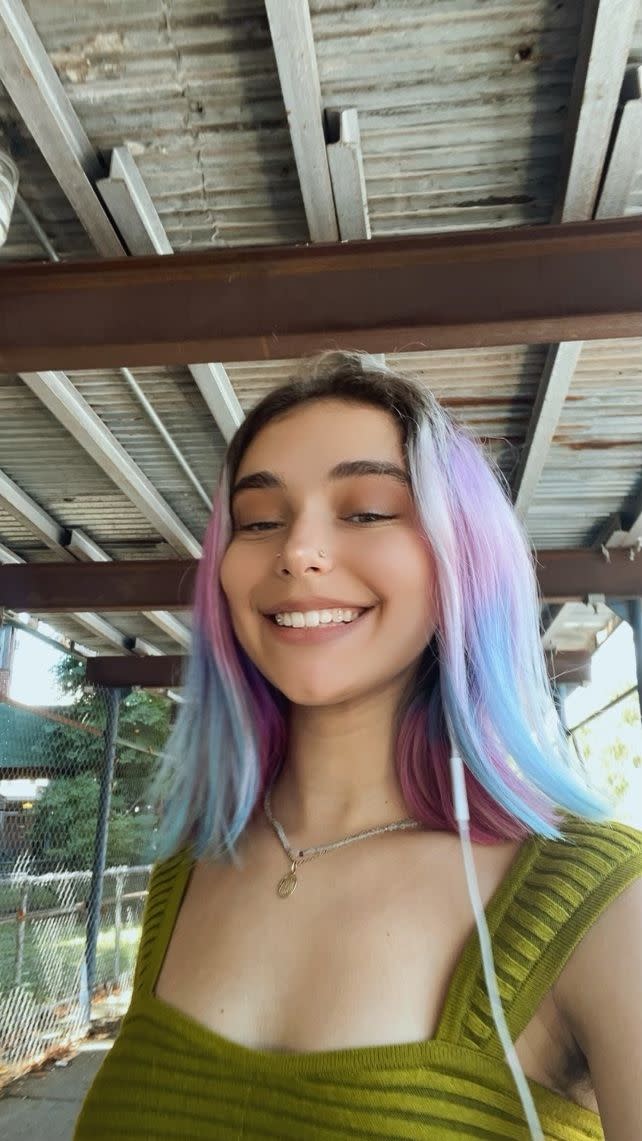
When I was 14 or 15, my high school boyfriend and I went to see Joe Biden. I met Biden, he pulled me in for one of those awkward long hugs, and said something shallow. I was hoping to have a moment with him to talk about his policies, because that’s more where my interests lie. But he kind of passed it off as a quick photo opp.
Time moved on, the 2020 election came up, and with the rise of Trumpism, and youth on a global scale organizing against fascism, it definitely radicalized us. Having all these intersecting, youth-led movements, coming together and sharing principles, ideas, and histories—we’ve been able to become more educated voters, or non-voters.
As someone who started organizing when I was 13 or 14, at that time when I thought I could walk up to Joe Biden and ask him a freaking policy question, I’ve been put in the same room with these politicians time and time again. And they’re always like, “You are the future! You are so inspiring!” But it’s constant photo opps, and advertising campaigns, and co-opting, and greenwashing. Appropriating the youth, using us as poster children, so they can get our support. But they’re not going to fulfill any of the promises they made. That’s what a lot of us are talking about. They’re not gonna fulfill any of those promises. And we’ve been pushing back since Day One.
It is a really scary tightrope I’m walking, right? On one hand, you have people saying that if you don’t vote, it’s gonna be worse. It’s gonna be more brutal, outward authoritarianism, and violence, suppression and oppression, versus someone like Joe Biden, who the establishment considers to be more respectable. But at what point do we stop organizing ourselves and our conversations around this two-party system that doesn’t even function?
Deja Foxx, 23
Influencer, Reproduction Rights Advocate, Former Kamala Harris Campaign Staffer
I’m surrounded by young people who are incredibly involved in politics, and care about their issues, and who show up every election cycle. Not just to vote, but to do the surrogate work—to go and speak at rallies, and to make the content that can shift elections. I’ve absolutely seen a reluctance among those people—at this point in the election—to do that 110%.

If the past few years have taught me anything, it’s that anything can happen, and November is far away. That being said, the young people who are hyper-involved, who are viewed as leaders within their spaces and their communities—they are at best, wary of getting involved in the national election, and at worst, already decrying it. The same young people who usually go out and knock on doors, who usually uproot their lives to go work on campaigns, who usually are creating content around elections are just not doing it now.
It’s great to be passionate about a candidate. But you can also not like a candidate, and realize that electoral politics isn’t about the politician. It’s about people, and their lives, and picking the best option. Winning an election is just the beginning of the work in so many ways. It’s to get the person into office who is then movable, so we can then show up to their community calls, we can show up to their meetings, and push them to do the things we want on issues. Most of the work happens between elections, really. I like that idea of earned optimism. If people were just a little bit more realistic about what elections actually are—which is the beginning, not the end—they might feel a little bit more emboldened. Because we have a long ride ahead of us.
Maddy Horak, 22
Marketing Manager, Boise State University Young Democrats
I’m gonna go vote because it's the right thing to do, and because I care about voting as an institution. But I don't feel excited about my choices right now. People are just really disappointed—especially college students—with the way Biden has seemingly kicked a lot of his supporters to the curb, like college students, as well as racial minorities. Right now it's like, why are we gonna vote if Biden isn’t addressing concerns about college students, like with student loans? It would take an insane amount of transparency, and almost a fireside-fricken-chat to reinvigorate us. Or, some sort of unbelievably strong magical mystery candidate who comes out of the woodwork and is like, “Screw everything! People are doing it all wrong, I'm gonna be the champion!” But those kinds of people don't really come through anymore.
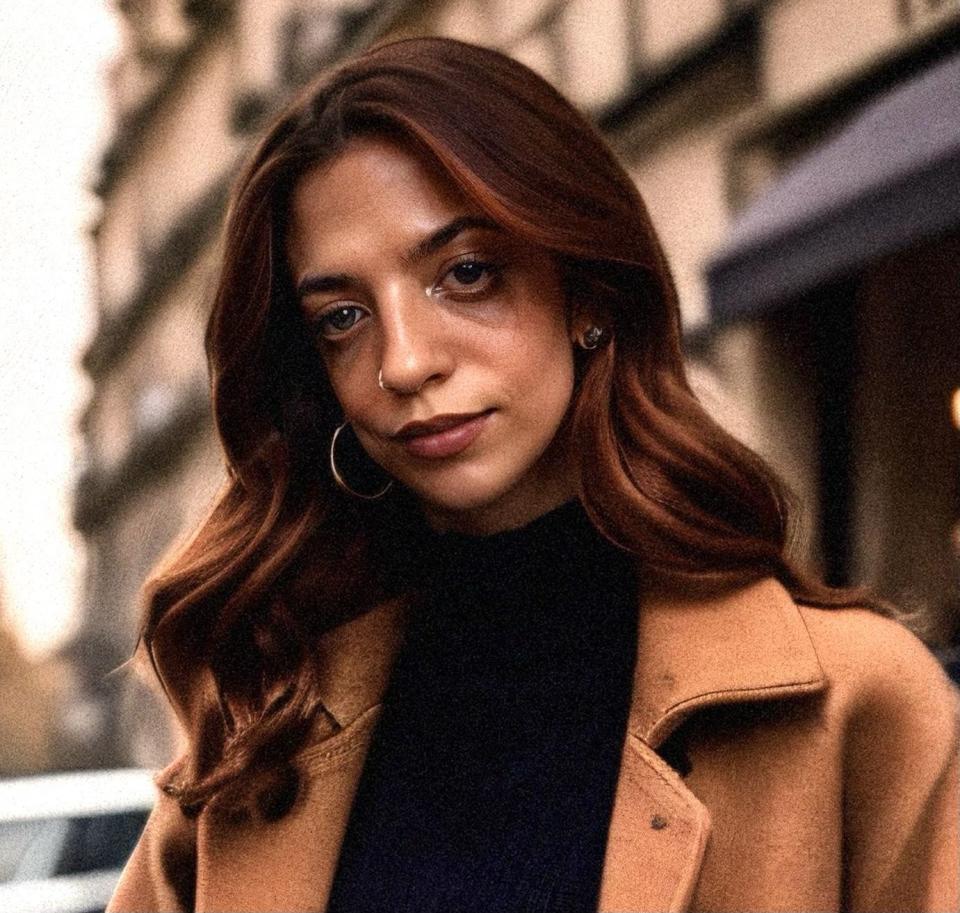
I'd love to see the president be more accountable and honest. Like: “Okay, student loan forgiveness. Here's the deal guys, this is why it's not happening. This is what I'm trying to do for you. Okay, Israel and Hamas. This is what we're doing for Jewish Americans, this is what we're doing for Palestinian Americans, this is our end goal.” Something that people aren't very happy about with Biden-Harris is that they almost feel like they’re not really around. And nobody likes to feel like that.
People are very discouraged. It’s very demoralizing, because it just seems like a lot of politics happens at the top. But all the hard work is grassroots and comes from the bottom, so a lot of us at the bottom feel like the work that we’re doing, while important, may be in vain. That’s getting to a lot of people. But voting is as important now as it's ever been, and it is as important now as it will ever be.
Darshan Kalola, 25
Staff Writer at the Harvard Salient, a conservative publication
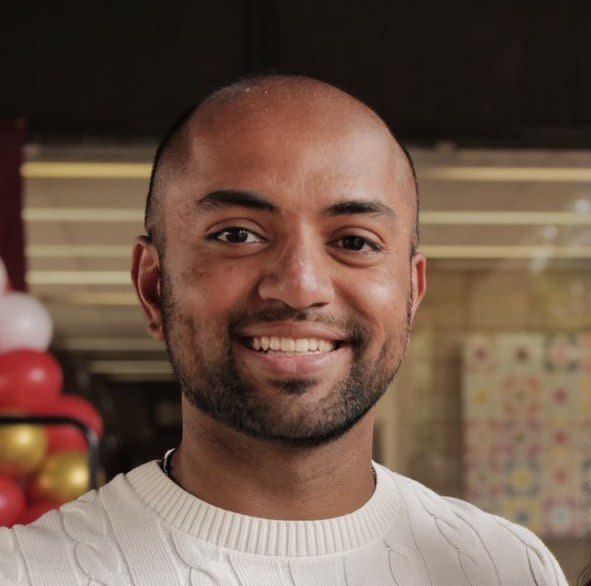
I don't have a blind allegiance to a political party. I would describe myself as more conservative, or even independent-thinking, than Republican. I’m not exactly sure who I’ll ultimately vote for in 2024. I will vote for Vivek Ramaswamy in the primaries. And if he did win the nomination, I would vote for him, because I generally think that the skills that you learn by being a politician make you a worse politician. The skills that you learn from other areas of life–business, academia, engineering, science–make you a better statesman. Career politicians, they've been inside of their own world for so long. And it really warps you. Your core responsibilities are to raise money and to garner votes. Both of these require you to not be authentic, and to not say hard truths.
One thing that’s very important to me, that I don't necessarily believe Vivek Ramaswamy embodies 100% of the time, is to be very civil and respectful to all the other candidates. There's so much division, and anger, and hatred in this county, and our politics plays a huge part in that. I don’t think it’s good for the country. It makes me less excited about voting.
Claire Simon, 18
Communications Director at Gen Z For Change
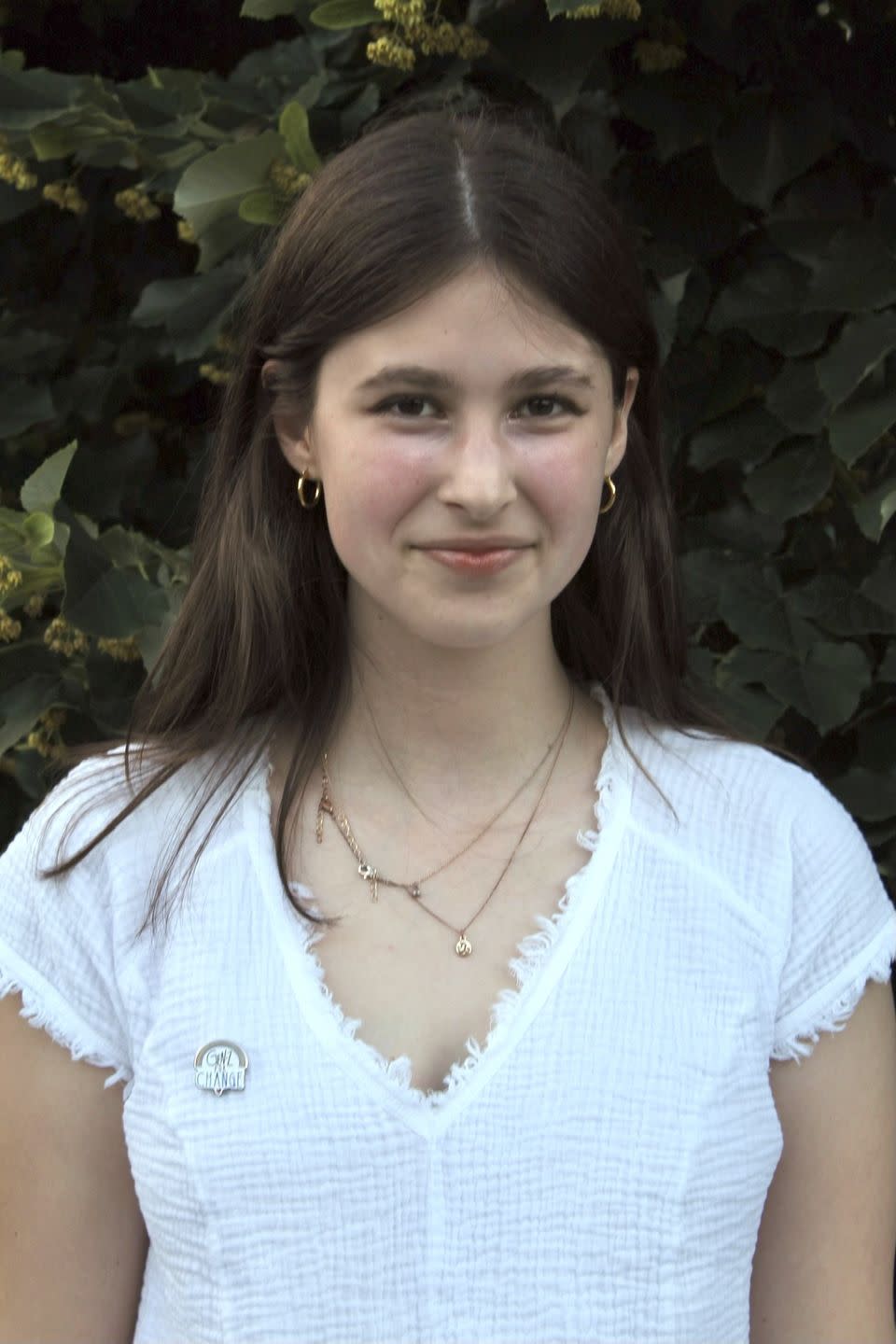
I do a lot of election work with my job at Gen Z For Change. I would say that I am not very enthusiastic about either candidate on the ballot. Neither are a lot of people in my generation. But I'm really excited about a lot of down-ballot candidates. Primaries in most states are the difference between electing a young, progressive Democrat and an older, more moderate one. It’s so important to remind people that even in a country with so many social barriers—we have the electoral college, we have gerrymandering, we have just the realities of the U.S. as it exists as a country—there are still ways to have an impact. Getting people excited to vote is partially about focusing on the positive, rather than dwelling in that apathy.
We know a lot of people are really discouraged about the presidential election. We’re trying to explain the upsides to that. Gen Z are much more issue-driven, much more impact-driven, than we are by a party. We’re not, “Vote blue no matter who.” We want to see change, we want to see results, as it relates to our future and our lives right now.
There’s also the fact that this is a repeat election. We did this in 2020. And a lot of young people are very disillusioned with that right now. They’re not going to vote for Trump, but Biden has not provided an environment in which Gen Z For Change feels comfortable actively campaigning for him. The best thing I could recommend at this point, with so many people so hurt, infuriated, and distressed over the state of the world, would be for Biden to take some responsibility over it. For his administration to admit that they know that they’ve lost people, which I feel like I haven’t so much seen. He should dedicate himself to specific, tangible things. Acknowledging the position he’s in, and that he’s aware of that and wants to reprioritize young people, would be a big step.
Kathryn Gioiosa, 20
Co-Executive Director of TREEage, a youth-led environmental justice organization
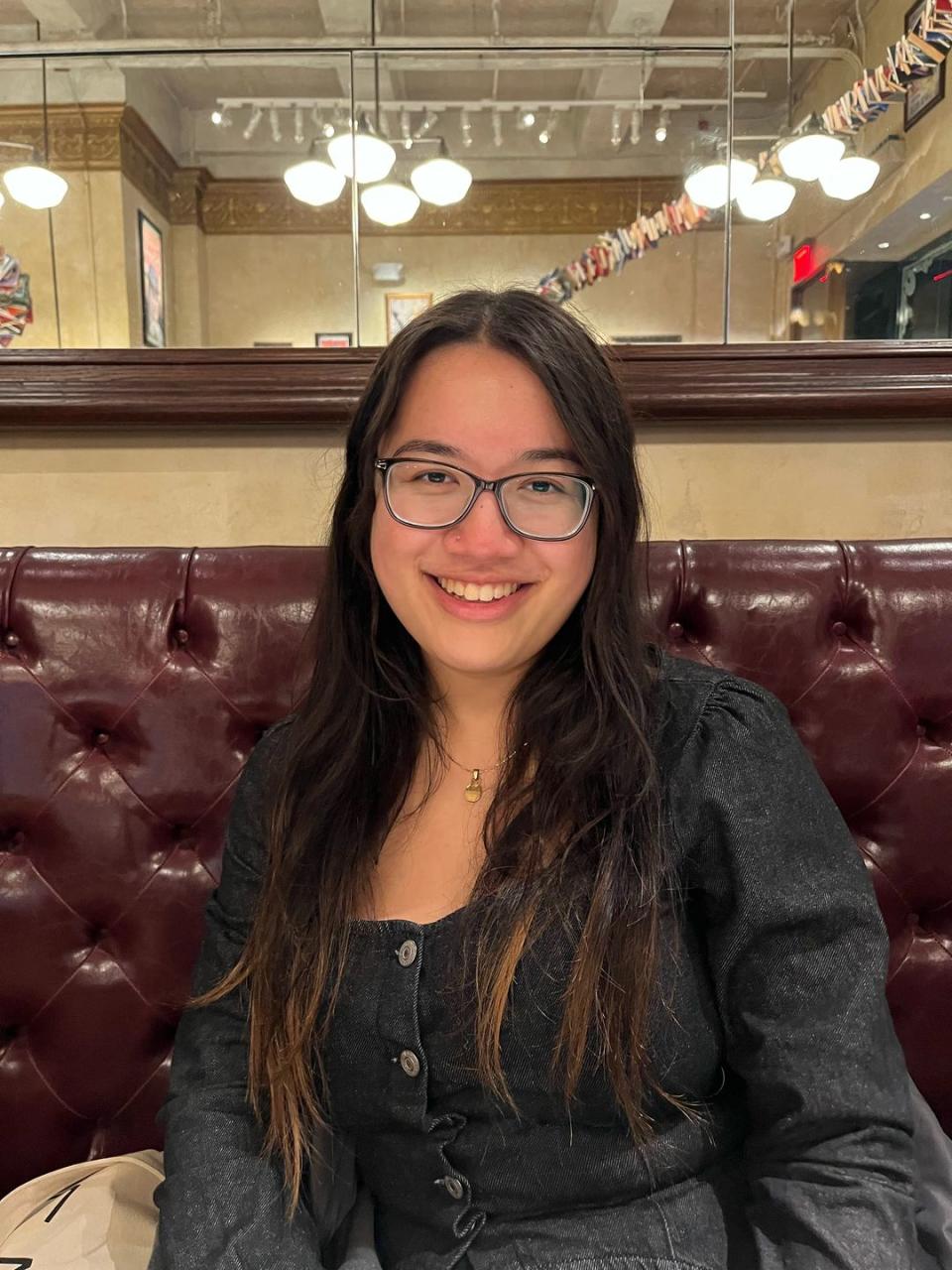
There isn’t much being done, on any level of government, to fix young people’s lives. On the local level, school budgets are being severely cut. I go to CUNY, and our schools are in massive disrepair, which is a city and state issue. But students don’t really know that, and are just tired of everything. When we elected Joe Biden, everyone thought things would get better but it hasn't, or has somehow gotten worse. People are less inclined to vote because, if it’s a rematch, nothing will change. If there was an exciting candidate, an exciting person to vote for, people would definitely vote. But it’s just the same thing over and over again that makes people disillusioned.
My expectations for Biden were pretty low starting out. But he hasn’t fulfilled all the promises he’s made so far. He hasn’t succeeded in canceling all student loans. The economy, since COVID, hasn’t fully recovered. And we’re seeing a huge increase in COVID cases. There’s air pollution. Some climate goals have been met, but not everything we need. There’s work to do. Young people do have a lot of power to influence our nation, but especially to influence local politics. In some of these races where most people don’t vote, it sometimes comes down to dozens or hundreds of votes. People should really pay attention to local politics, it’s where a lot of change can actually happen.
You Might Also Like


